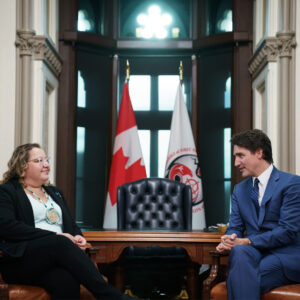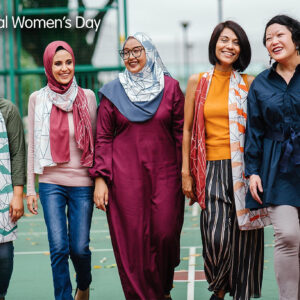
Senator Patrick Brazeau, 38, who is being investigated by the RCMP over allegations of breach of trust over his housing and expense claims, and faces additional legal troubles including assault and sexual assault, is now making allegations that his “political downfall” with the Prime Minister’s Office started a year ago when he began to question the government as to why it hadn’t called a national inquiry into missing and murdered aboriginal women, according to CBC News.
This comment made by suspended Senator Brazeau has been unsettling to certain members of the First Nations community, especially those who have been fighting for the rights of Indigenous women and who have been advocating for a National Inquiry for years.
Former President of the Native Women’s Association of Canada from 2004-2009, Bev Jacobs, had this to say, “It has been the families directly who have had to make emotional pleas to the public. Plus, there have been many front-line activists who have been assisting these families and trying to bring attention to the issues surrounding missing and murdered Indigenous women for the past 30 years long before I came on the scene with Amnesty International (Stolen Sisters) and NWAC (Sisters in Spirit). And despite the emotionally difficult efforts to bring attention to the issues, the general public is still not taking this seriously.
Families of the missing and of those found murdered deserve answers and justice. So if it takes a National public inquiry, of which I originally asked for while President of NWAC, then the public will become educated about how Indigenous women have taken the brunt of the impacts of colonization resulting in the critically high numbers of missing/murdered as well as being the targets of violence in general. Racialized and sexualized violence should no longer be tolerated in today’s society!”
NWAC spearheaded Sisters in Spirit, a five year research initiative which documented cases of missing and murdered Indigenous females in Canada. Before their funding was cut in 2010, they had documented 582 cases of females who were either murdered or had gone missing. Many speculate that these numbers are actually much higher since NWAC, due to time and money limitations, were only able to research the past 30 years.
Other organizations and political leaders that have been advocating for a National Inquiry include: Union of British Columbia Indian Chiefs, Assembly of First Nations, former Liberal Opposition member, Anita Neville, Ontario Premier Kathleen Wynne along with other Provincial and territorial leaders, and James Anaya (United Nations Investigator on Indigenous Peoples’).
In November of 2012, Brazeau wrote a song about missing and murdered Indigenous women and posted a video of him performing it on YouTube, called ‘Please Come back To Me’. In February, after he posted his video online, Brazeau found himself spending a night in jail, being arrested on allegations of assault and sexual assault against his former partner. A few months after that, Brazeau was in more legal trouble after another former girlfriend accused him of assault.
Patrick Brazeau is a member of the Kitigan-Zibi First Nation, which is near Maniwaki, Quebec.
Ironically, Brazeau was appointed to Senate in December 2008, three months after two young Indigenous women went missing from Maniwaki. Maisy Odjick and Shannon Alexander, best friends, went missing in September 2008. The two young women remain missing today.
Last December, Senator Patrick Brazeau originally told APTN that a Senate inquiry into missing and murdered Indigenous women was not the best route to take and that they are non-binding and really just amount to a debate. However, shortly after that Brazeau changed his tune and started speaking publicly in support of a national inquiry.
Despite Brazeau’s allegations that he may have been railroaded out of Senate because of his support for a public inquiry, he merely added fuel to the flame of support for missing and murdered Indigenous women.
For years now, numerous Indigenous leaders, politicians, Indigenous as well as non-Indigenous organizations, and International organizations have been putting pressure on the federal government to have a national public inquiry as to why so many Indigenous women and girls in Canada become victims of violence, sexual assault, disappearances and murder. To this day, however, we have yet to see this inquiry.
by Jennifer MtPleasant








Comments are closed.